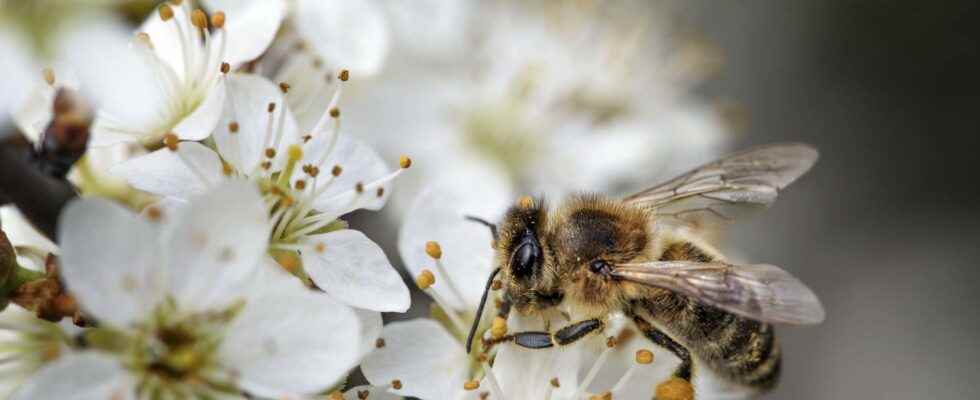The pollination of plants by insects is a free and essential ecological service that contributes to the maintenance of biodiversity. It plays an important economic role for society by being an active player in the production of food. However, rural or urban air pollution seems to reduce this natural process. Why ?
Pollination, what is it? The sexual reproduction of plants angiosperms (flowering plants) and gymnosperms (seed plants) is done by transporting the pollen from the male reproductive organs (stamens) to the female reproductive organs (pistil). This important step in the fertilization is called pollination and is carried out mainly by insectsin particular the bees and the butterflies. This interaction brings advantages to both parties: to the plants which will reproduce and benefit from a better genetic mixing, and insects that are supplied with nectar and pollen. This process is essential and contributes to maintaining the biodiversity.
Link between pollination and pollution
However, the pollution of theair in rural or urban areas seems to reduce this action of pollination by insects. Scientists from the University of Reading, UK Center for Ecology & Hydrology and the University of Birmingham investigated the impact of air pollution on pollination by the insectsespecially bees, moths, hoverflies and the butterflies.
For this study, published in Environmental Pollution, scientists have carried out tests on wild plants and plants in cultivated soils with atmospheric pollutants found close to the ground such asozone and oxides ofnitrogen (NOx — present in diesel exhaust). During this experiment, the quantities used for NOx are equivalent to 40 to 50% of the maximum authorized quantities, therefore well below the levels of pollution that can be found in cities.
The results of this study showed up to 70% pollinators less, up to 90% less flower visits and an overall drop in pollination of up to 31%. To understand these numbers, scientists looked at a previous study carried out by members of the University of Reading which showed that diesel exhausts alter the odor emitted by flowers. Faced with these new data, the theory would be that pollutants react with the smell of plants, making their location more difficult for pollinating insects.
The negative impacts
This finding is disturbing for several reasons. Firstly because the pollination plays an important economic role for society by being an active player in the production of food. Indeed, pollination brings in hundreds of billions of dollars by supporting 8% of agricultural food production worldwide and 70% of all species crops (such as apples, strawberries and cocoa) depend on it. And second, these pollutants that alter the smell of plants are in the air that the majority of the population breathes every day. In addition to having consequences for ecosystems natural sources on which we depend, these pollutants are also harmful to our health.
Interested in what you just read?
